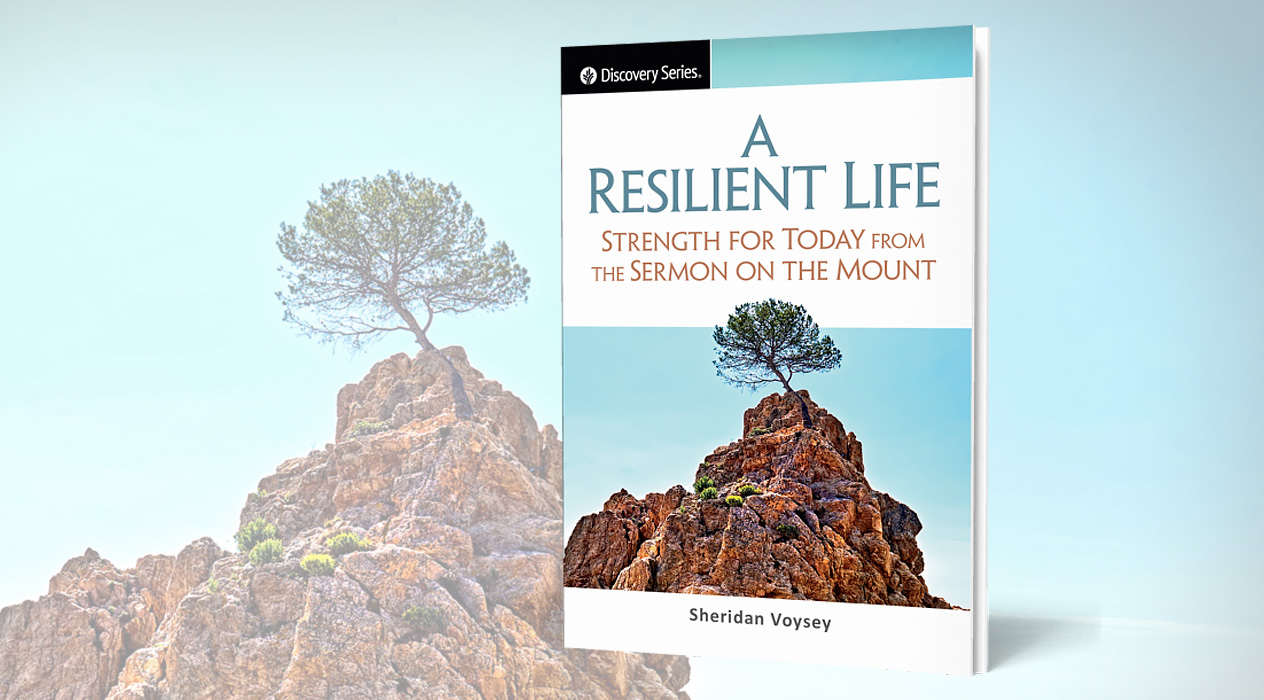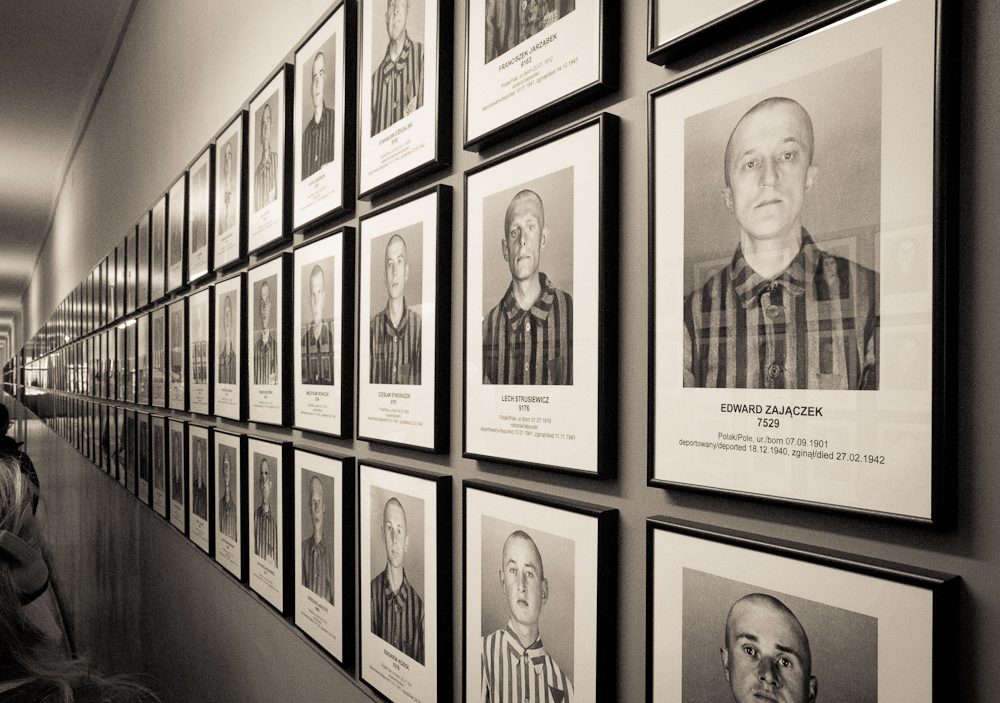Four Ways to Turn Suffering into Service
Researchers into resilience say we bounce back from adversity better when we can find a way to turn our weakness into strength and our pain into power. It’s a nice thought, but how can it happen? Here are four ways I’ve seen God do it: by seeing our pain as a challenge to be fulfilled, a gift to be embraced, a story to be shared, leading to a tribe that can be served.
Picture: Ken Slade (Flickr, creative commons)
Click To Listen
1. A Challenge to Be Fulfilled
I was speaking at a conference once on how God can bring new beginnings out of broken dreams. A woman and her daughter came up to me afterwards. The daughter, Kate, in her late 30s, was too distraught to talk, so her mum spoke for her:
‘Last year my daughter’s husband was arrested on charges of indecent dealings with children,’ she said, ‘including his own daughter. Since then Kate has lost her husband, her children, and most of her friends—no one wants to be associated with something like this. We’ve been very touched by what you’ve shared today, but what good could come from something like this?’
What could I say? This was serious pain. I didn’t want to give false hope or some pious platitude. So I began to pray silently while asking Kate a few questions.
‘Kate,’ I said, ‘the sense of broken trust for you must be intense. Your husband has broken your trust, your friends have broken your trust…’ ‘My church too,’ Kate said. ‘They haven’t known what to do so have left me to fend for myself.’
And that’s when it hit me—a nebulous thought that crystallised into something clear but weighty. ‘Kate,’ I said, ‘if you were to see this broken trust as a challenge to be fulfilled—learning how to rebuild trust after it’s been so badly broken—and if you were to face that challenge with God and document your experience—the highs, the lows and all the lessons in between—you could help many people rebuild trust after their own betrayals. That would be a powerful way your broken dream could become a new beginning.’
Kate became thoughtful and her face began to soften. ‘Yes,’ she said quietly, ‘perhaps it could.’ Hope was born. Kate’s pain was on its way to being turned into strength.
2. A Tool To Be Used
I’m the first to reach for the ibuprofen when I have a headache. We live in an era of great medical advancement and should be grateful for and make use of every remedy available. But when I read some of the classic spiritual authors on pain I see them approaching it from a different angle. For most of them, pain is a force God uses for our good and others’ good:
‘I have been often near expiring, but I never was so much satisfied as then,’ wrote the 17th century monk Brother Lawrence, who was lame in one leg and suffered from plenty of illness. ‘Accordingly, I did not pray for any relief, but I prayed for strength to suffer with courage, humility and love. Ah, how sweet it is to suffer with God!’
‘The heart is stretched through suffering, and enlarged,’ wrote Thomas Kelly after a season of illness and burnout.
World Vision founder Bob Pierce could famously pray, ‘Let my heart be broken with the things that break the heart of God.’
Some suffering can be avoided, some can be removed, but some suffering is inevitable, and countless people testify that when endured with God, suffering can become a tool that can be used: producing empathy, courage, humility and love in us, expanding our hearts and equipping our hands to be conduits of healing to others. Pain can birth worldwide ministries like World Vision, and produce life-changing books in service to others.
3. A Story to Be Shared
Speaking of books, how many lives have been changed by St Augustine’s Confessions, Brother Lawrence’s The Practice of the Presence of God, Aleksandr Solzhenitsyn Gulag Archipelago, Nelson Mandela’s Long Walk to Freedom, Elie Wiesel’s Night, or Corrie Ten Boom’s The Hiding Place? All were born from deep pain and all have profoundly helped countless people.
As the CS Lewis character in the movie Shadowlands says, ‘We read to know we’re not alone.’ By reading the discoveries others have made through their own difficult journeys, we can find comfort in our plight while learning how best to live. Your story could do that for others too.
There is a time to share your story for your sake—to facilitate your healing. Later there may be a time to share your story for others’ sake—to facilitate their healing. In my case that involved writing Resurrection Year and sharing our broken dream experience, which has led to hundreds of emails and Facebook messages from readers telling me it’s helped them heal.
You don’t need to write a book to share your story though. We can turn our suffering into service by creating:
- Songs
- Blog posts
- Film scripts
- Artworks
- Works of fiction
- Conversations
- Government policies
- Memorial funds
And sharing your story can lead you to…
4. A Tribe to Be Served
A missionary once told me a fascinating story. He was serving in Estonia and saw many deaf Estonians become followers of Jesus. Having come to believe in a miracle-working God, these deaf Christians prayed fervently for their healing. And God did miraculously restore the hearing of two of them. But the miracle carried an unexpected consequence.
‘Immediately afterward,’ the missionary told me, ‘the two who were healed found themselves outside the deaf community. That’s when the others realised their deafness was a gift which enabled them to reach a segment of society no one else could.’
There is a Tribe whose members are both hidden and everywhere around you. Initiation to this Tribe comes through suffering, inclusion comes through pain. And only through pain. If you’ve walked through the wilderness of suffering you may be amazed at the circles it gets you into and the encouragement, hope and healing that can result. I talk about this ‘Tribe of the Scarred’ at length here.
By seeing your suffering as a challenge to be fulfilled, a gift to be embraced, a story to be shared, reaching a tribe to be served perhaps you too will see your pain turned into strength. I look forward to hearing how.






Romi
I’ve read a Discovery Series booklet, “When God Says No,” which has deeply impressed me. (That is how I’ve come to know your name.)
I’ve been reluctant to write (and relive) my painful experiences of depression, but your book has inspired me to share my story with other people, so that I might be of a little help to someone. I’m praying that God will use my weaknesses to help other people.
Sheridan Voysey
That’s great hear, Romi. Expect the process to be difficult as you relive some things you’d rather not relive. But also expect some things to fall into place that hadn’t before; dots connected that you hadn’t previously seen were connected.
Clare Alice
Hm well, some of the things i’ve been through have been very painful, and I wouldn’t choose it , but I now know what many people are going through. And as a result I know there will be times I can share words of encouragement, scriptures, truths and advice that have helped me. In fact there have been many times already to do that.
Maybe i’ll write about it some time. I have a little mental picture of a coffee table book of truths that I have learned that have helped me along the way. Who knows. Whatever God seems to give me the time and prompting to do.
I really don’t want to be defined by my painful valleys or look backwards at it, but no doubt it is now one part of the many ways God can work good through my life, and to help others to know that when you put your trust in God, it always gets better.
Sheridan Voysey
Not being defined by the past is an important thing to add here, Clare. I think you can get to a point where you can speak *out of* the story without telling the story. You can mine the pain for wisdom without needing to go over it again.
I’d like to see that book.